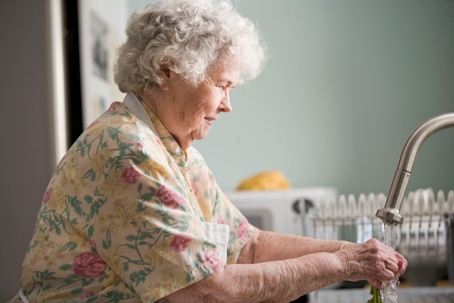Some of the most recent data on nursing home abuse in the United States shows that more than 40 percent of nursing home residents have reported abuse, and more than 90 percent have reported that nursing home staff have neglected them or someone else. These shocking statistics make it difficult to think about a loved one living in a nursing home but, often taking care of them at home isn’t financially or logistically possible.
What Constitutes Nursing Home Abuse?
Nursing home abuse is a form of elder abuse that involves a caregiver, or any other staff, intentionally causing harm to or neglecting a nursing home resident. Multiple studies report that more than half of nursing home staff members have admitted to abusing residents in one form or another. In many cases, elder residents are afraid to report a staff member because it may lead to further abuse.
The National Center for Victims of Crime reports the most common types of nursing home abuse as:
- Physical abuse
- Resident-on-resident abuse
- Psychological abuse
- Gross neglect
- Sexual abuse
- Financial exploitation
Fault in Nursing Home Abuse Cases: It’s Not Just Individual Employees
Any person who works or spends time in nursing homes might perpetrate abuse, including doctors, nurses, nursing assistants, and other residents. Nursing assistants responsible for residents' day-to-day routines often spend the most time with them and have the easiest access to abuse. Some risk factors that make an elder more likely to experience abuse in a particular facility:
- The facility accepts residents whose needs they cannot meet.
- The facility has high employee turnover with a lot of overtime and absent workers.
- The managerial response to abuse or neglect is poor or nonexistent.
- Nursing home staff are not given consistent or clear expectations.
- There is poor communication between those in charge and those who interact with residents.
- The facility lacks proper training for staff and management.
The vast majority of nursing home abuse is not violent. When a staff member abuses a resident, it often takes the form of neglect. Some examples include:
- Withholding food and/or drink from a resident so they don’t push the call button for help to the restroom
- Bedsores from lack of proper turning and care
- Inappropriate touching by another unsupervised resident
- Slips and falls by unsupervised residents
- Bodily harm from not using proper lifting or turning techniques
When Nursing Home Abuse Happens, How Can Victims Recover Compensation?
Nursing home abuse victims might recover damages for injuries directly related to their abuse, including:
- Medical expenses such as hospitalizations, surgeries, medications, radiology, etc.
- Costs of physical therapy and rehabilitation
- Costs of assistive devices such as wheelchairs, walkers, canes, etc. needed for recovery
- Physical pain and suffering
- Emotional pain and suffering
In some cases, your attorney might file a medical malpractice suit, and in the case of death, the family may need to file a wrongful death suit.
Nursing Home Facilities Will Defend Against Claims of Abuse
Nursing care facilities will often go out of their way to avoid paying damages even when they are liable for the abuse of an elder. The defense may use a variety of strategies including denial, pointing to preexisting conditions, or shifting the blame to a staff member, visitor, or resident. In cases where a resident was malnourished, the nursing home might argue that the resident refused to eat or drink. When the defense cannot shift the blame, it may downplay the victim’s injuries.
Regardless of the circumstances of your case, consider hiring an experienced personal injury attorney who has dealt with nursing home abuse cases. Nursing home abuse lawsuits often include more than one liable party. A good attorney knows how to navigate through the complexity, predict the defense’s strategy, protect you and your loved one from these tricks, and hold the abusers accountable for their actions.
If a loved one suffered abuse or neglect in a nursing home, you must help hold the parties responsible. Your elderly loved one doesn’t need to tolerate this behavior, and in fact, Colorado law might entitle your loved one to compensation for injuries sustained by nursing home abuse or neglect. Contact the experienced attorneys at Clawson & Clawson, LLP. Our legal team has years of experience handling Nursing Home Abuse cases and will work diligently to ensure that you receive the compensation you deserve. Contact us today for a no-obligation case evaluation.
